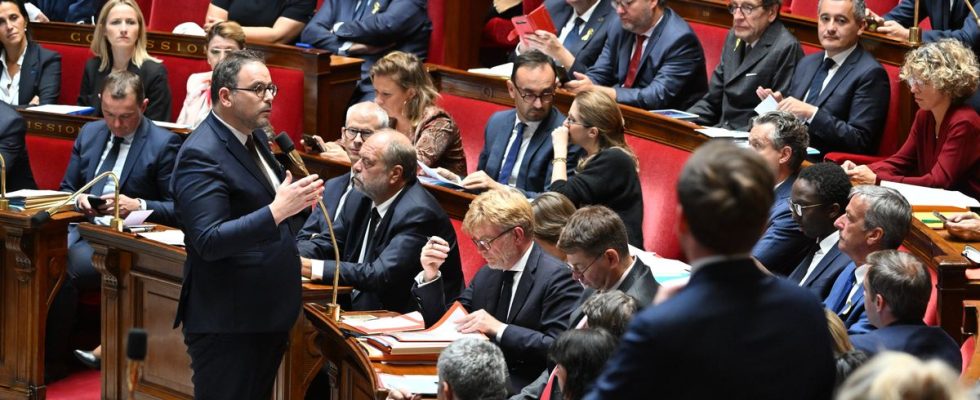Each year, it is a different part of the examination of the State Budget. Discussions begin this Tuesday on the Social Security financing bill in the National Assembly. Before possible amendments and other 49.3, here are the main measures of the plan planned by the government, already rejected in committee.
Fight against the deficit and savings
The Social Security deficit is larger than expected in the last financing law in April: it is estimated at 8.8 billion euros in 2023, then 11.2 billion in 2024. The accounts are weighed down in particular by the increase health insurance expenses. The government is therefore aiming for a saving of 3.5 billion euros on health insurance expenditure, including 600 million euros linked to hospital expenditure (development of outpatient services, regulation of temporary medical work, “optimization” purchases, etc.), 1.3 billion on health products (mainly reductions in drug prices), 300 million on community care, in particular analysis laboratories, and 1.25 billion linked to “responsibility » professionals and patients.
Fight against fraud
To fight against social security contribution fraud, the government wants to tackle the “under-declaration” of turnover of micro-entrepreneurs employed by digital platforms, a shortfall estimated at 800 million euros in 2021 By 2027, digital platforms will have to collect these contributions directly. The government is planning other measures, such as the possibility, in the event of proven fraud by a health professional, of removing financial aid granted by health insurance.
By amendment, the government also proposes to create an offense of inciting social fraud “by any means whatsoever”, punishable by a sentence of 2 years in prison and a fine of 30,000 euros. This measure follows the broadcast of a widely relayed video where a young man claimed to receive 1,800 euros net monthly income “without giving a damn”, by accumulating various allowances.
Fight against sick leave
The subject has been agitating treating doctors and businesses for months. Faced with the explosion in expenses linked to sick leave, the government wants to strengthen the control powers of Health Insurance and businesses. The medical examiner mandated by the employer may suspend the payment of compensation to patients when he considers the stoppage unjustified, with the possibility of appeal by the insured. The text also limits the duration of stops prescribed by teleconsultation to three days (with exceptions, in particular for the attending physician).
Fighting drug shortages
Several drugs have not been found in pharmacies in recent months, such as amoxicillin. The government is proposing to act on both the pharmaceutical industry and prescription side. In the event of shortages in the supply of a medication, single delivery may be made obligatory by order. Pharmacists will then have to deliver “the appropriate quantity” rather than a whole box. The government may also make it compulsory to carry out a rapid diagnostic test, for example to provide certain antibiotics.
The executive also plans to reform the “safeguard clause”, a financial contribution paid by pharmaceutical companies to Health Insurance when their drug turnover grows very quickly. It will now be calculated differently, and lowered to 1.6 billion for 2023 and 2024 (compared to 1.7 then 2 billion expected). In return, companies “will be asked to make efforts to reduce prices by 1 billion euros, including 850 million for medicines”, and to “participate very actively” in controlling volumes.
Shared transport, menstrual poverty and therapeutic cannabis
Reusable periodic protection, i.e. panties and menstrual cups, will now be reimbursed for women under 26 and all beneficiaries of supplementary solidarity health insurance. The text also enshrines in law free male and female condoms for all insured persons under 26 years of age.
Patients who refuse an offer of medical transport (light medical vehicle or approved taxi) shared with another patient, without a valid medical reason, will have to advance costs, and will only be reimbursed on the basis of the price of transport. sharing. By amendment tabled on Friday, the government plans to create a “temporary status” for therapeutic cannabis, to continue the “experimentation” which will end next March.
Evolution of hospital pricing
Emmanuel Macron wants to reduce fee-for-service pricing in hospitals. Introduced in 2003, it is often accused of having pushed establishments into a race for lucrative acts and returns. The bill proposes to introduce two other funding methods, one based on “public health objectives” and the other on “specific missions”. But this complex reform will only really begin to be applied on January 1, 2025.

